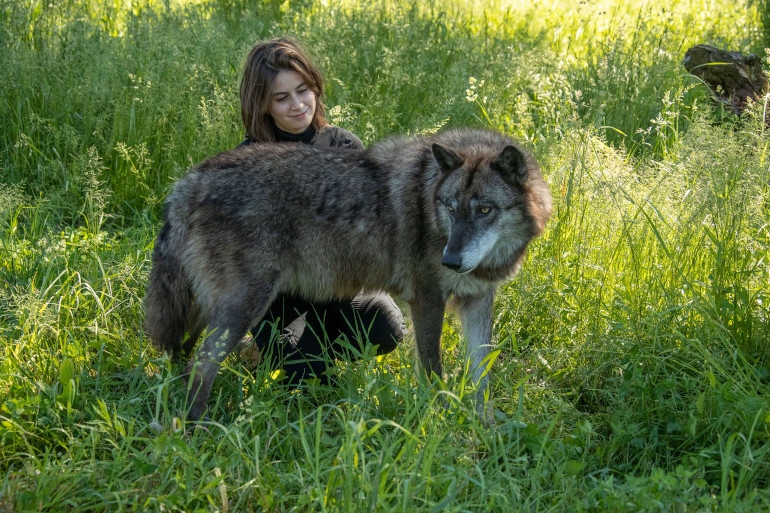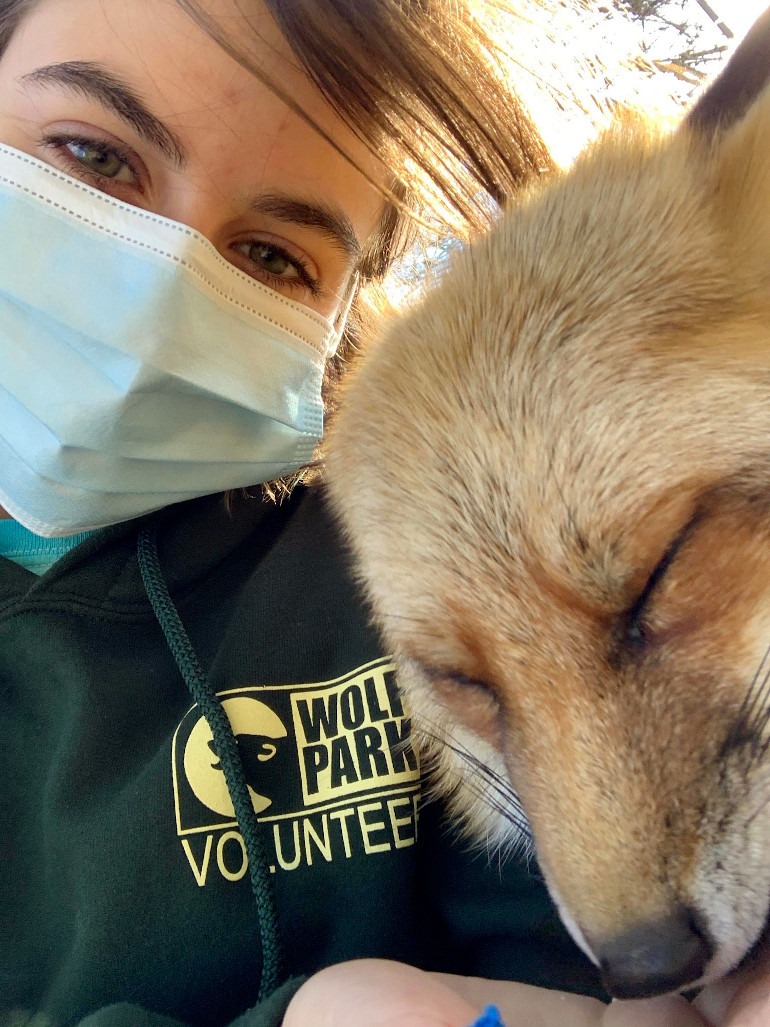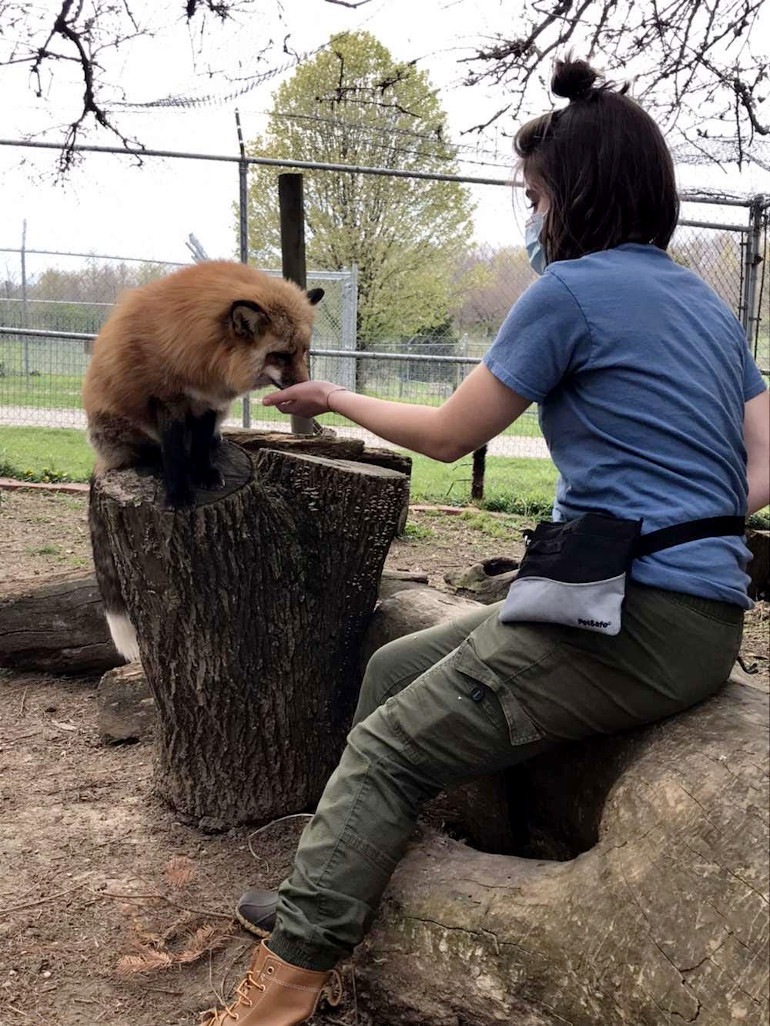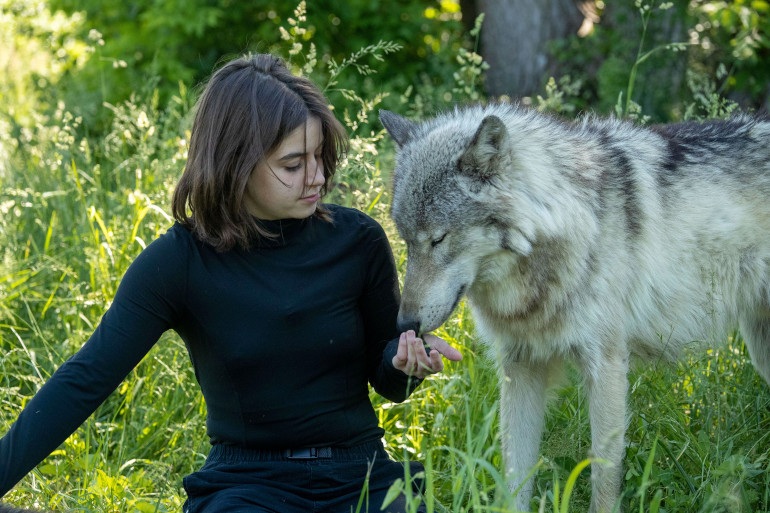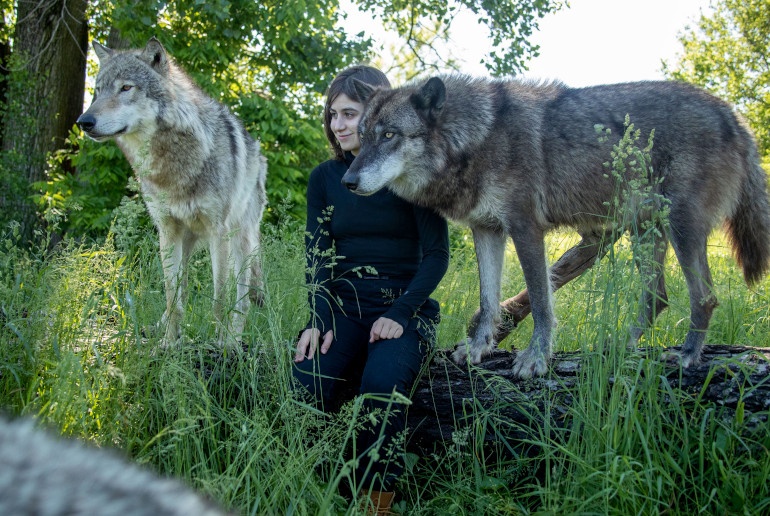(Photos courtesy Monty Sloan of Wolf Park, and Breck Aguinaga)
By ALISHA CALL, USD 470 Public Relations Director
Even as a child, Breck Aguinaga knew she loved animals and wanted to make a positive impact on our environment and the animals we share it with.
Breck graduated from Arkansas City High School in 2021 and in August of her senior year, she began exploring internship opportunities. While she was accepted to multiple programs, she ultimately chose Wolf Park in Indiana.
“The staff is made up of animal people and environmentalists,” Breck said. “I could tell they were kind people who were legitimately there for the right reasons.”
According to the non profit’s website, Wolf Park is a privately-owned, wild canid research and education center. Wolf Park is home to red foxes, gray foxes, gray wolves, and bison. In the past, coyotes were also on-site.
Breck’s 3-month internship ended in May. While there, she helped with a number of tasks including: leading tours, educating the public, cleaning, maintenance, animal food prep, feeding the animals, and helping to run the visitor center.
The staff, volunteers, and interns participated in a process called “meatballs” in which they would give the wolves small pieces of meat without pills in them. During these rounds, the wolves would also get fresh water.
“Sometimes, if a wolf needed medication, their meat would contain a pill,” Breck said. “Even if they’re not taking medication, the wolves still get the blanks so they don’t become suspicious of the meatball.”
Foxes would get their medication and water changed during their morning and evening training sessions.
She also helped with veterinary checks, had social visits with the animals, and helped reinforce the animals’ training with hand signals.
“The animals have been trained to respond to certain hand signals which assist with their welfare and medical checks,” she said. “The wolves and foxes will rest their heads on a chin rest to have their teeth, gums, and eyes checked. They will also rest their paw on a paw rest which allows the animal care staff to check their feet for sores or something stuck in a paw pad, and their nails.”
Breck assisted with vet check-ups for Joker, a red fox with cancer. She also got to watch as Sparrow, a wolf, was trained to and ultimately was the first wolf to voluntarily give blood. The animal care staff had worked closely with Sparrow to reach that goal and they continue to work with other wolves to develop that skill.
In addition to the work, she participated in weekly seminars. Interns learned about the history of wolves in North America, the problems they now face, their behaviors, howls, pack structures, and how hunting is a learned behavior.
They also learned about red wolves, comparative anatomy, and coyotes, among other things.
“North America has seen an increase in the coyote population because wolves have long been hunted which has thinned out the coyotes’ competition and because coyotes are very adaptable,” Breck said. “Female coyotes have an internalized mechanism which allows them to increase their litter size when populations are sparse which is why hunting coyotes is only a temporary way to thin a population.”
Even large cities such as Chicago and New York are seeing an increase in coyotes.
“Animals are showing us they’re here to stay which means our efforts might be best directed toward co-existing with them,” Breck said. “We can do things like securing waste and compost so animals can’t get to it, not leaving our small pets outdoors alone, and when animals like coyotes and foxes do come close we can ward them off — not by throwing things at them or harming them, but by doing something as simple as a jumping jack… a strange movement that may deter them from coming closer.”
Breck plans to be a wildlife veterinarian. She will attend Cowley College then, will likely transfer to either K-State or a school in British Columbia.
Ultimately, she sees herself working for a non-profit animal conservation center or wildlife rehabilitation center on the West Coast.
“I thought it was very educational and informative,” she said. “I really learned a lot.”
An Ark City native, Breck knows what it’s like to want to do something that may not seem as accessible due to location. She offered some advice to younger students who may be interested in something similar.
“Because we’re a small rural area, it may seem that you’re the only one out there who is interested in something but don’t feel discouraged if you don’t immediately see resources or an opportunity right in front of you, get online and keep putting in the work until you find a door to open.”

